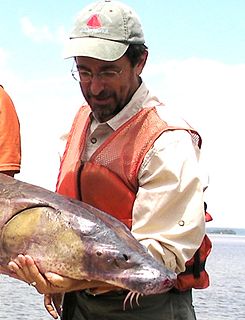A Quote by Rupert Murdoch
While we reduce our own carbon footprint we will encourage the companies who truck our DVDs and newspapers, sell us paper, and provide an enormous range of products and services to all contribute.
Related Quotes
We're starting with our own carbon footprint. Not nothing. But much of what we're doing is already, or soon will be, little more than the standard way of doing business. We can do something that's unique, different from just any other company. We can set an example, and we can reach our audiences. Our audience's carbon footprint is 10,000 times bigger than ours... That's the carbon footprint we want to conquer.
Every company that manufactures something is causing some damage either to the soil or water or air. Most companies treat these as externalities. But the growing movement of sustainability calls for companies to internalize these costs. Once companies do this, they will have a strong incentive to reduce their carbon footprint.
Pap Machinery uses LubeMate products to keep our truck fleet moving so we can provide timely service to our customers. LubeMate has proven they manufacture quality products that meet our daily demands. The LubeMate team at Valley Industries has provided excellent service and their products are an exceptional value.
Subsidies for the oil, gas and coal industries are projected to cost taxpayers more than $135 billion in the coming decade. At a time when scientists tell us we need to reduce carbon pollution to prevent catastrophic climate change, it is absurd to provide massive subsidies that pad fossil-fuel companies' already enormous profits.
A blessed thing it is to have a friend; one human soul whom we can trust utterly; who knows the best and worst of us, and who loves us in spite of all our faults; who will speak the honest truth to us, while the world flatters us to our face, and laughs at us behind our back; who will give us counsel and reproof in a day of prosperity and self-conceit; but who, again, will comfort and encourage us in days of difficulty and sorrow, when the world leaves us alone to fight our own battle as we can.
Cities can be the engine of social equity and economic opportunity. They can help us reduce our carbon footprint and protect the global environment. That is why it is so important that we work together to build the capacity of mayors and all those concerned in planning and running sustainable cities.
People, materials, facilities, money, and time are the resources available to us for conducting our business. By applying our skills, we turn these resources into useful products and services. If we do a good job, customers pay us more for our products than the sum of our costs in producing and distributing them. This difference, our profit, represents the value we add to the resources we utilize.
Probably the single-most concrete and substantive thing an American, young American, could do to lower our carbon footprint is not turning off the lights or driving a Prius, it's having fewer kids...we'll soon see a market in baby-avoidance carbon credits similar to efforts to sell CO2 credits for avoiding deforestation.


































